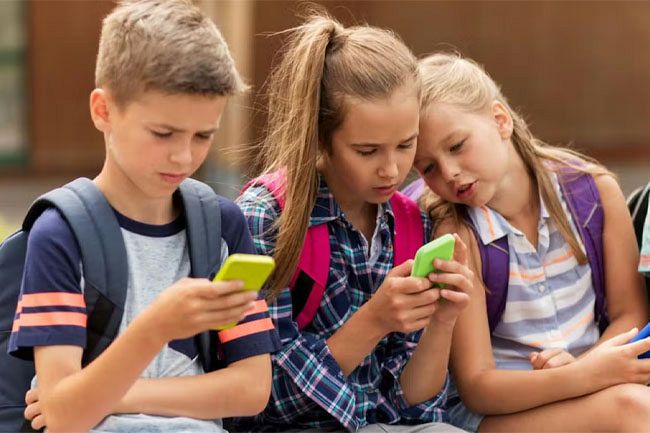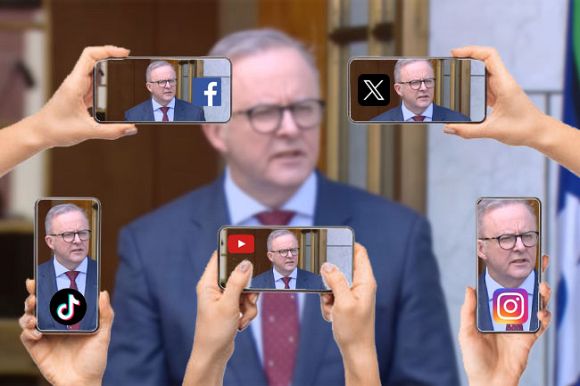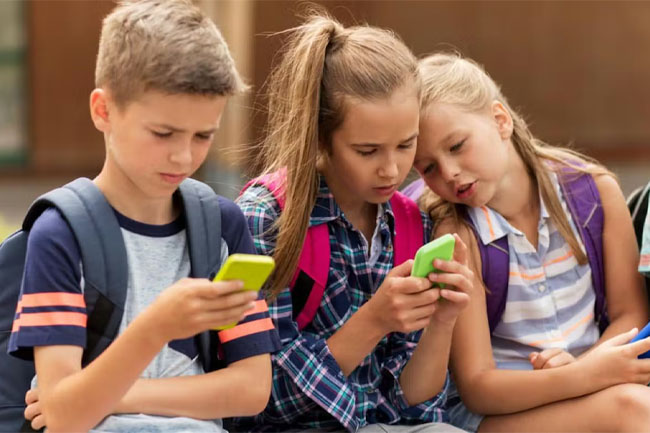A looming social media ban could feel like punishment to today’s teens, but it may end up being their long-lost ticket to freedom, writes Kate Zarb.
I FEEL LUCKY to have been born in 1973.
Even though it means I’m now considered “one of those cool old lady writers” (not as cool as them, of course, but cool enough to be invited to all their launch parties), I have things today’s youth can only dream of. Many an online commenter marvels at the memes depicting the norms of the '80s, so long ago that even some of us have forgotten. The images of a street that could have been ours, overlaid with white text that says, ‘Curfew was when the street lights came on,’ always brings out wonder in the Gen Z bebes.
And who can forget those summer evenings that seemed to last forever? The many sunsets we ignored because we were so focused on whatever game was popular that day.
The long summers we spent playing in a space that was entirely our own – no parents, no adult neighbours, no dobbers – where we could create our own worlds, our own rules, our own society. It was where the Catholic and the Protestant kids could play together. Our parents might have sent us to different schools, but that was where the religious barriers ended. Outside, you were only as good as your last catch in street cricket.
In those evenings when I felt warm, accepted and free, we would reassure each other, vent about our annoying siblings, and gossip about former friends and future enemies. But most of all, we would laugh, we would see acceptance in each other’s eyes and we would know that we had a real friend.
But the freedom we enjoyed wasn’t limited to handball and street cricket (which could only be enjoyed after promising mum we would stay where she could see us). Our liberties were even better than that. We were able to hang out with whoever we wanted to without worrying about what people would think of us if we did.
Today’s teenage boys and girls have been turned into micro-brands even before they learn what that is. “She’s so glam,” “OMG her skincare routine is amazing,” “She’s an earthy girl,” “She’s a nerd, but I kinda like her” are repeated so often, they can become kids’ whole personalities. Even kids not on social media fall into categories — the eternal “She’s such a goody two-shoes,” “She’s got really strict parents,” and the brush everyone dreads being tainted with, “Her parents deleted all her socials after that thing with Travis.”
Teenagers in the '80s were free to dream big; way bigger than any cohort of teenagers before or since. When we were young, uni was free, so we assumed (mistakenly, as it turned out) it would be free for us, too. Jobs were plentiful for anyone who wanted to work straight away – apprenticeships (“traineeships” had never been heard of), office juniors, cadets and entry-level jobs galore – and most of us chose just that. Many students did one or two side gigs to pay our way through uni, knowing that graduate jobs were plentiful even if we only had a Credit average.
But for us, our first job always meant we were working for someone else. We didn’t have the headaches about branding and marketing that too many of our young ones have today. There are girls and boys barely in their teens worrying about their “aesthetic” every time they leave the house, even if it’s just to go to a family barbecue. The pressure to always look Insta-worthy, always be on-brand and never say the wrong thing in public must be exhausting. Too many children have taken on the role of celebrity with all of its burdens and none of the perks.
We had unappreciated joys inside our own homes, too. Who can forget the feeling of writing their innermost thoughts in a lockable journal with 120gsm ruled paper? And, of course, it was extra special when you were using a new pen. But what strikes me now is that even though I remember exactly how I felt then, I recall none of what I wrote.
2020s kids don’t get to create those core memories anymore, where the sound, smell and even the temperature are etched in their memories forever. Everything they do is remediated through a screen. “Notes” doesn’t actually feel like the wads of paper we passed around in class. “Draw” doesn’t smell like markers or acrylic paint, or sound like a lead pencil on exercise book paper. And the only recording we did was when we frantically pressed “Play” and “Record” simultaneously as soon as we heard the first bars of our favourite song.
I know the imminent social media ban is going to upset a lot of kids and for quite a few of them, it will be genuinely tough. But for the majority of teenagers, life will change for them when they’re free of its suffocation — and they just might enjoy it. They’ll rediscover the happiness in creating an artwork for a friend and delivering it by hand – quite literally – the next day.
They might crack open one of those pretty notebooks they’ve been given over the years and become a writer before they realise it. They might discover, like me, that reading, writing and papercrafts are the only things that bring my racing ADHD mind back to a comfortable walking pace. They might experience the joy we felt during those long after-dinner phone calls with friends, talking about everything and nothing, and loving every minute.
They’ll even get to use FaceTime and have a three or four-way conversation, an event we didn’t even dream about in 1986. I almost envy them.
Social media isn’t the cause of everything that troubles our young people, but it rarely helps and often makes things worse. But the damage to our kids isn’t just in the screen addiction or online bullying; the overlooked danger is that it asks so much of our youth that they forget to be kids.
Our childhood gave us a glimpse into our future and promised us a life of possibilities. We knew we had options, we felt safe in the world and we looked forward to our 20s with hope. And sometimes, I fear we were the last generation who did.
I hope I’m wrong.
Kate Zarb is an exhausted Gen X woman who just wants the world to be a better place. She has worked in everything from hospitality to politics, using each chapter as an opportunity to learn about the world we live in.
 This work is licensed under a Creative Commons Attribution-NonCommercial-NoDerivs 3.0 Australia License
This work is licensed under a Creative Commons Attribution-NonCommercial-NoDerivs 3.0 Australia License
Support independent journalism Subscribe to IA.












